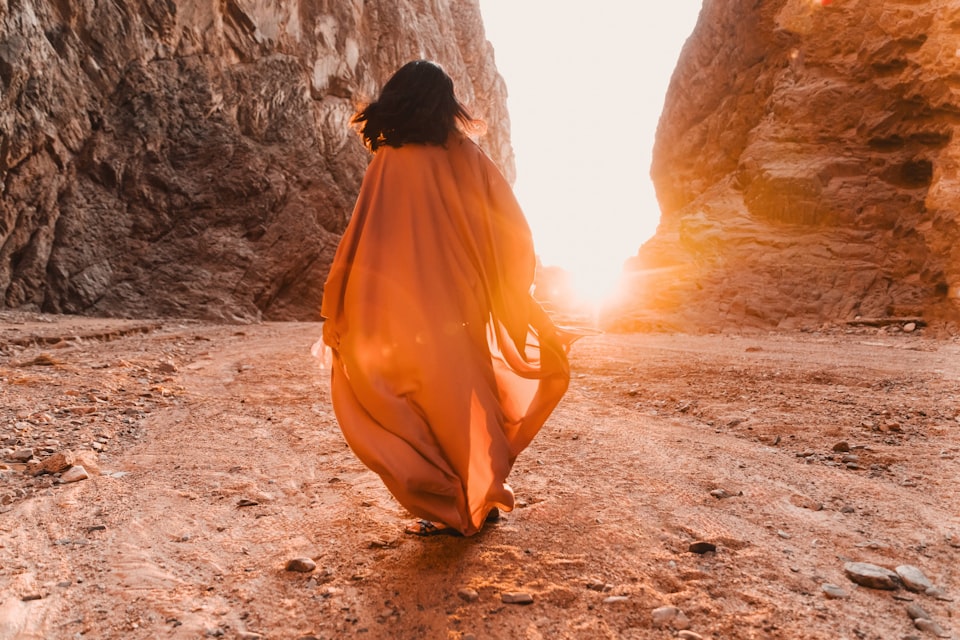🏖️How to Enjoy the Present Moment

This past week I had the pleasure of visiting Kerala, a state in South India. I got to spend time with family and witness some of the most beautiful parts of India. Perhaps relevant for this audience, but I was particularly mesmerised by this art form called Kathakali. The artists showed an impeccable mastery of portraying emotions.
--
Traveling teaches me to pay attention to the present moment. It is easy and indeed automatic to check our phones. It is also seems natural and innocent to take photos. But any of those distractions could take away from the value you could extract from the present.
Take for example the natural act of taking photos of things we find beautiful. At travel, music concert, what have you. But every time we take that phone out, or when we share that story to Instagram, we are not enjoying the very thing that is worth shareable.
The reason why travel or a great music concert evokes awe is because we have an experience of losing our sense of selves. We get carried away by the vastness of the ocean, the ripple of the waves, and the shades of rough and smooth of a bark. To notice these things is to derive value from travel.
Which is also to say that to be distracted is to be not enjoying the travel or the concert. It is to be missing on the experience that you likely paid for.
I'm am of course not advocating to ditching the phones and photographs. I think they are valuable and they serve a purpose. But what I am saying is the value of your experience, travel or day-to-day, is premised on you paying attention to it. Just merely booking tickets, or even physically being at a beautiful place, guarantees no fulfilment. One has to pay attention and be present.
--
You might have heard of heard of spiritual gurus or modern day coaches tout the 'power of now'. How exactly do you enjoy the present moment?
The answer lies in tapping at the various sense doors. When I was on a boat ride in Cochin, I had the profound experience of witnessing the the ripples of the waves. Then my attention was taken by the various shades of light and dark that enveloped the water. I also naturally began sensing the temperature of the air and the cool of the breeze. I noticed the mangroves, the birds, and their colours, in their full glory.
I would have missed all of this had I been distracted. I can guarantee my family who were kindly taking photographs did indeed miss all of the above. We did not have the same experience even though we were just a few inches from each other.
--
Paying attention to the present moment is not about forcing yourself to be here and now. Being preoccupied with the present is being preoccupied, and being preoccupied is being distracted. The trick is to observe the sensations of your body as it is, without imposing a layer of interpretation on it.
When you find yourself in a moment worth enjoying, take a moment to feel it fully. Tap into vision - what colours do you see, what shades and shadows do you see, what glitters and textures can you notice. Then tap into the body - how does the air feel, what's the temperature like, do you feel a sense of vitality and health. Similarly tap into sound, thoughts, and taste. What you might find is there are so much value that the moment has to offer.
And of course, why limit the search for this richness only in the so-called peak moments? Might every moment of life be filled with such beauty just waiting to be noticed? Can you tune our sense doors to such beauty in even ordinary waking life?
--
Why does the present moment feel so liberating? What is so peculiar about being in the now that it leads to happiness?
We all feel a sense of self. We feel like we are behind our heads floating around in the world. We feel that we are located behind the eyes looking at the world.
But of course that is illogical. There is nothing in the retina that hosts the self, and neither is any part of the brain uniquely associated with the self.
When we have a peak moment in travel or in a music concert, we temporarily lose that self-consciousness. We momentarily get lost and lose the cognitive and physical burden of maintaining an illusory self. Hence the feeling of lightness or pleasure that accompanies experiences of awe.
--
I hope you enjoyed this contemplative email. Meditation is the best way to train to be in the here and now. Here is my quick introduction to meditation from 3 years ago. Still gold.
